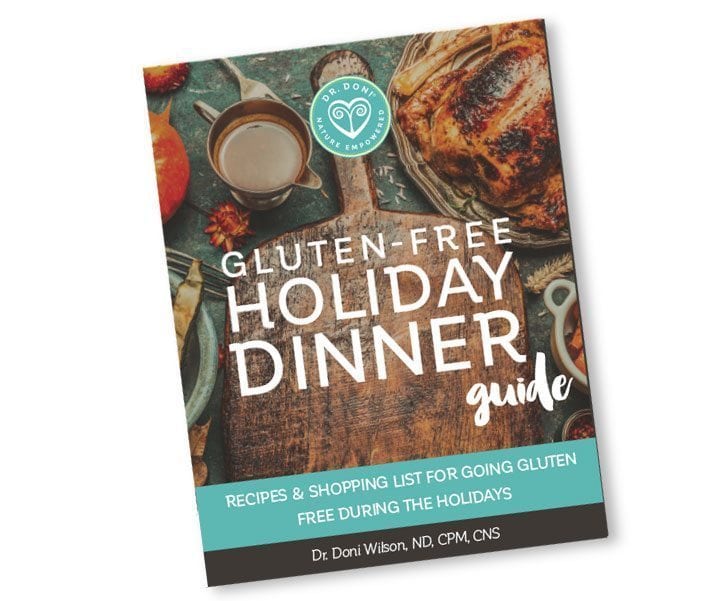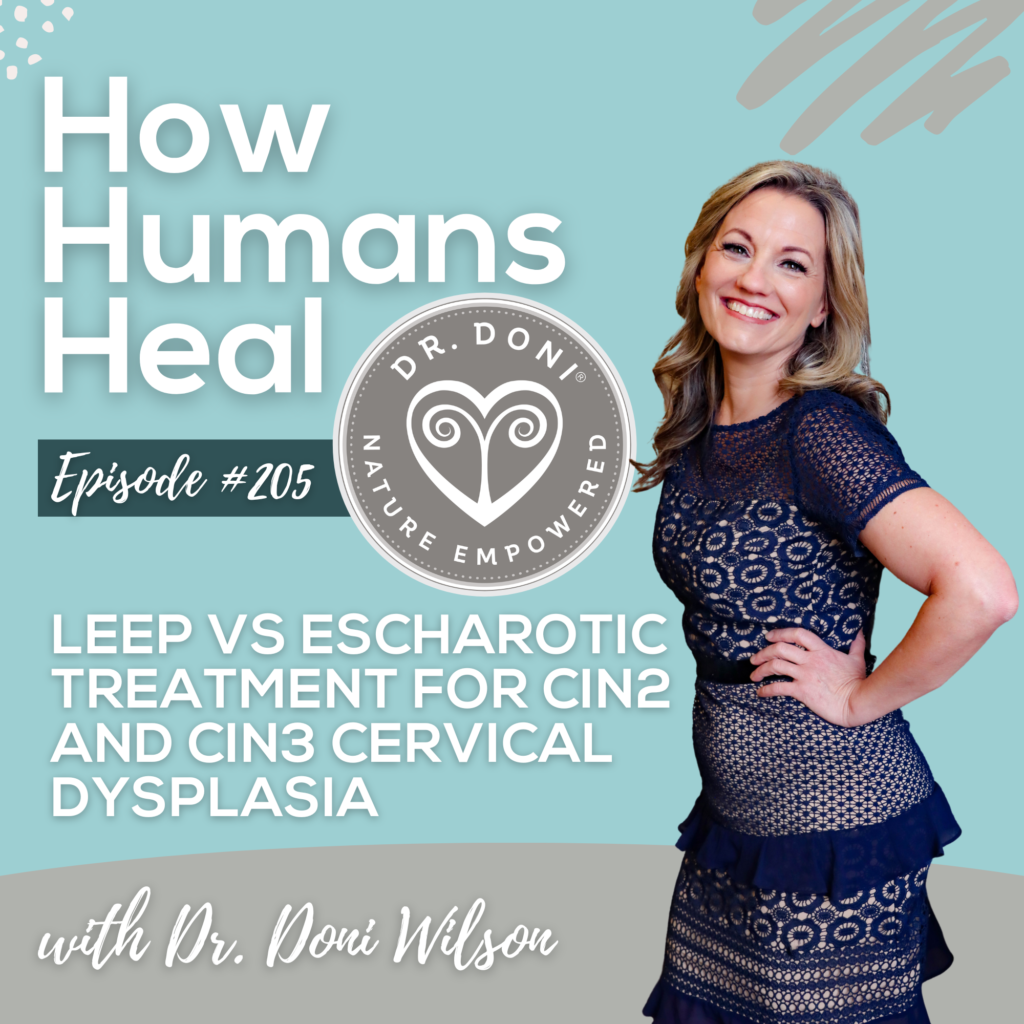
Gratefulness: Giving Thanks for the Small Things
- Home
- Stress & Adrenal Fatigue
- Gratefulness: Giving Thanks for the Small Things

This Thanksgiving, Dr. Doni explains how gratitude actually improves our health and reduces our stress.
It can be hard to feel grateful for anything when you are feeling unwell, tired, or stressed. This Thanksgiving, I want to look at finding that gratefulness in the small things – and how that, surprisingly, can have a positive effect on your health!
Most patients who come to see me tell me their mood, sleep, energy, focus, digestion, and/or resiliency to infections are not what they would like them to be. In fact, the questionnaire I ask all my patients to fill out prior to their first appointment asks about all of these stresses and helps me evaluate how they, and the resulting stress, have affected your health. That’s right – my whole goal is to understand how stress has affected your health. Then I use that information in an equation that, to me, explains both what is determining your health at this point in time, and what we can do to improve your health. My magic equation is this:
Genetics (including that of your intestinal bacteria)
plus
Exposure to all kinds of stress
equals
Your Health
We used to think that our genetics were set in stone and that we couldn’t do anything about our predispositions to health issues. Now we know better. We now know that what we do influences whether or not our genetic risk plays out and affects our health. For example, a recent study showed that when people with the highest genetic risk for heart disease implement lifestyle changes (diet changes, exercise and stress modification such as practicing gratitude), their risk of having a heart attack decreases by over 50%.
This is to say, when you give your body what it needs, and avoid what it doesn’t, it functions better, your health improves and you feel better. I would say that makes it absolutely worth taking those steps and making those choices to improve your health, wouldn’t you?
Stress: At the Heart of Health Issues
Stress leads to changes in cortisol and adrenaline levels. We often hear how cortisol goes high, but it could also go too low. Same with adrenaline. When that happens a ripple effect occurs, disrupting hormones throughout your body (such as thyroid, insulin, estrogen, progesterone, leptin, and more), disrupting your digestion, immune system, and nervous system. By the time stress hits all of these areas it can be like a tsunami, spinning you into a blur of fatigue, pain, and turmoil. By then, your heart hurts both emotionally and physically, because the inflammation, oxidative stress, and nutrient deficiencies that have resulted from that stress prevent it from functioning well.
How Gratefulness Counteracts Stress
Gratefulness – or giving thanks for the positive aspects of life – on the other hand, has been shown to improve all of the stress symptoms I mentioned at the start of this article: Mood, sleep, energy, focus, digestion, and immunity. A 2015 study at the University of California found that women and men with heart failure who kept a gratitude journal for eight weeks had improved heart rate variability (a good thing) and a reduced risk of heart attacks and heart failure.
Other studies have found that the stress hormone cortisol is 23% lower in people who practice gratitude, and the calming part of their nervous system (the parasympathetic) is stronger. Within two weeks of daily gratitude, levels of oxytocin – the bonding hormone – were higher (also a good thing), blood pressure shifted to healthier levels, and both mood and sleep improved. Mental clarity increased while inflammation decreased. This means that being grateful, even for the little things, improves your health and helps to reset the stress equation to your benefit. You can read more about this gratitude effect here and here.
According to Robert Emmons, an expert on the science of gratefulness, gratitude creates a shift in mindset that allows us to celebrate the present moment and appreciate friends, ourselves and our life circumstances. This simple change turns out to have a positive ripple effect throughout the body, shifting the body from stress to wellness.
I’m so grateful to have discovered how stress is at the heart of health problems – mine and my patients.
My Personal Experience with Stress
It was back when I was studying midwifery that I became interested in studying how stress affects women in labor. Basically some stress is needed for labor, but too much stress inhibits labor (and it turns out that gratefulness reduces stress in pregnancy as well). I started to apply this concept to health in general, and began noticing all the various types of stress we are exposed to, not just emotional stresses, but stress in foods, stress in lack of sleep, and stress in toxins. I researched, wrote, and lectured about stress and how it is involved in anxiety and depression – that anxiety and depression are not caused by a lack of medications but by the influence of stress on our physiology. This course of study culminated in my writing a whole book on the topic – I called it The Stress Remedy because it shows exactly how stress causes health issues and how we can use that knowledge of stress to unravel them and restore wellness.
I also learned a lot from my life experiences. I learned from personal experience that stress is the underlying cause of most health issues. I discovered that, when I learn to give my body what it needs, even while under stress, I feel better. I used to get migraines, severe menstrual cramps, heartburn, episodes of vomiting, neck pain, severe allergies, reactions to many foods, sinus infections, canker sores, heart palpitations, and such severe nightmares I was afraid to go to sleep. By staying focused on learning what I could do to support my body through each of these experiences, I have found wellness for myself which I feel passionate about sharing with others.
I feel grateful for these health problems – I think of them as lessons from my body.
What Does Your Body Need?
While changing your diet, taking more exercise and managing your stress can improve your health dramatically, we can also give your body a helping hand by giving it a boost of the things it needs more of. To find out what extra things your body needs we can do what I call a “stress test,” a saliva and urine test that measures your cortisol and adrenaline levels. This tells us how your body has adapted to stress up to this point in time. We can also look at hormone and nutrient levels, how well you digest food and the balance of bacteria in your intestines. Then we can compare all that to your genetic predispositions to get a sense of what you need more or less of to keep things optimized. Once we have all that information, we can give your body the extra support it needs to get back on track.
Once we know how stress has affected you, we start by giving you the human essentials: Nutrient-dense foods, adequate sleep, exercise, and stress reduction – including gratefulness practices. These four things are so essential to your capacity to recover from stress that, when I designed my special Stress Remedy Programs, I made sure to include steps to help you integrate them into your day-to-day routine.
It’s not about eliminating stress altogether – that would be impossible. We need a certain level of stress to function. It’s about accepting that there are some stresses we can’t do anything about right this minute, and others that we can either change or avoid.
We have a great example of food stress coming up – it’s the start of the holiday season and that means too much rich food, too much alcohol, and too many cookies and pumpkin pie! However, when it comes to food during the holidays there are ways to enjoy yourself while still avoiding the foods and beverages that end up being a stress for your body.  I know how hard it is to say no to all those goodies, especially when they are literally being handed to you on a plate. I want to support you with this, so I have updated my free Holiday Dinner Guide with new recipes and a handy shopping list.
I know how hard it is to say no to all those goodies, especially when they are literally being handed to you on a plate. I want to support you with this, so I have updated my free Holiday Dinner Guide with new recipes and a handy shopping list.
For getting more sleep and exercise, it starts with a plan to prioritize them in your schedule. Getting to bed even an hour earlier can improve your energy, your mood, your memory, and your immune system the next day.
Stress reduction comes in many forms including yoga, meditation, spending time in nature, and/or with animals and journaling about your thoughts and feelings including what you are grateful for, not just on Thanksgiving, but all year round. It also includes spending time with friends and family, taking breaks from the usual schedule – and again, Thanksgiving provides a perfect opportunity for both of these. How’s that for something to be grateful for?
My Gratefulness to You
I’d like to thank each and every one of you for being here, reading my blog, and hopefully feeling inspired about what you can do to improve your health. As a patient recently said to me:
“I’m grateful for the practitioners who were not able to help me because they lead me on the path to naturopathic medicine, and solutions for my health.”
Happy Thanksgiving to you, and your families and friends!
–Dr Doni
21st November 2016
Share this Post:
Dr. Doni Wilson's Team
14 Day Detox Program
Take the Stress Type Quiz
Dr. Doni Social Media
Popular Posts


The 5 Burnout Types

Healing HPV Holistically: Dr. Doni on the Inspire Health by Jen Podcast

Recent Podcasts
Signup to receive our weekly newsletter with all the latest news, podcasts and special offers
New Book - Order Today!

SIMPLE PRACTICES for SHIFTING FROM YOUR STATE of STRESS to YOUR FLOW and FREEDOM
MASTER YOUR STRESS
RESET YOUR HEALTH
Order Now! Related Posts

What is making you susceptible to HPV?
I have been working with women who had abnormal cells on their cervix and/or vaginally, caused by HPV for over 20 years now. And while

The 5 Burnout Types
Did you know there are 5 burnout types? They are based on your Stress Type®, which is how your adrenal function has been affected by

Healing HPV Holistically: Dr. Doni on the Inspire Health by Jen Podcast
Dr. Doni was interviewed by Jen Ciszewski on the Inspire Health by Jen Podcast, talking about how to heal away HPV from your body for good.

Stress and Trauma: The Science Behind It, How It Shows Up and How to Heal: Dr. Doni on The Burn Fat and FEAST Podcast
Dr. Doni was interviewed by Sarah B. Thomas on the Burn Fat and FEAST Podcast, talking about the impact of stress and trauma on our health and what to do to recover from them.














